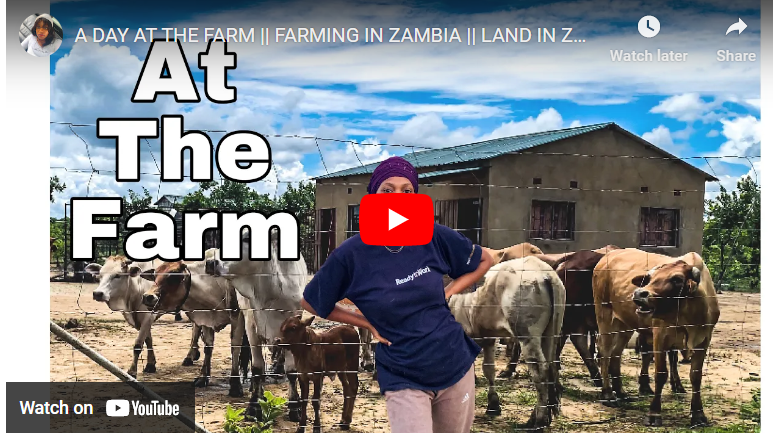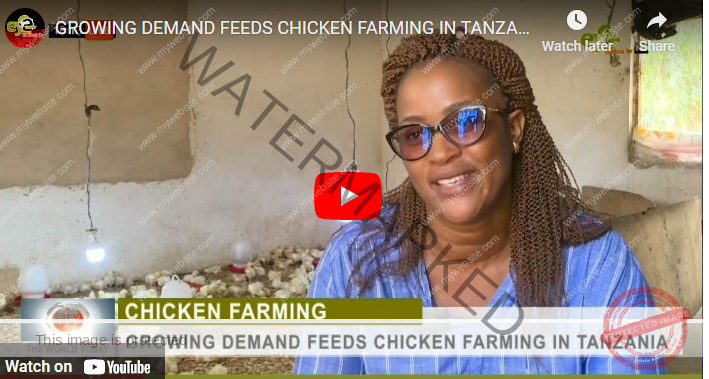Zambia, a country located in Southern Africa, is known for its vast agricultural potential. Agriculture plays a crucial role in the country’s economy, with pig farming being one of the most profitable ventures.
The pig industry in Zambia has seen tremendous growth over the years, and this has resulted in an increase in the number of successful pig farmers.
In this article, we will take a closer look at some of the richest pig farmers in Zambia, their success stories, the challenges they faced, and their impact on the country’s economy. We will also explore the various opportunities that exist in the pig farming industry in Zambia
Richest Pig Farmer In Zambia
In Zambia, a country known for its copper mining and agriculture, a pig farmer has emerged as one of the wealthiest individuals in the country.
Peter Luyt, also known as the “Richest Pig Farmer in Zambia,” started her farming venture with just few pigs and has grown his business into a multi-million dollar enterprise.
Read Also: Richest Pig Farmer In Uganda
Luyt ‘s success story has not only made his household name in Zambia but has also earned his recognition on the international stage. We will explore how Luyt achieved this level of success and the lessons that other aspiring entrepreneurs can learn from her journey.
Background of Peter Luyt
Peter Luyt is a successful pig farmer in Zambia who co-owns the Wangwa Farms with his wife Carla Luyt. He has been involved in farming since 1994 and has gained a wealth of experience in the industry.
Peter started off as a plant farmer, cultivating soya beans and maize, before branching out into pig farming.
Read Also: Richest Pig Farmer In The World
He has since become the richest pig farmer in Zambia, with his farm being recognized for its excellence in producing high-quality semen and gilts.
Pig Farming
Peter Luyt’s Wangwa Farms has gained a reputation for excellence in the pig farming industry. The farm is known for its production of high-quality pig genetics, with Wangwa Farms partnering with PIC, the largest pig genetics distributor in the world.
The farm’s focus on pig genetics has led to the development of a strong customer base in Zambia, Tanzania, and Malawi.
Read Also: Top 5 Richest Pig Farmer In Kenya
Wangwa Farms uses an intensive pig farming system that allows for high levels of production, making it a successful business venture for Peter Luyt.
With the help of three experienced farm managers, he has been able to operate the farm efficiently since 1994.
The farm’s success can be attributed to Peter’s dedication to innovation and his willingness to adapt to the changing market conditions.
Read Also: Top 5 Richest Poultry Farmer In Kenya
Net Worth
Peter Luyt’s success in pig farming has led to a considerable net worth. As the richest pig farmer in Zambia, he has accumulated significant wealth from his business ventures.
While the exact figure is not publicly available, it is estimated that his net worth is in the millions of dollars.
Read Also: Top 5 Richest Goat Farmers In Uganda
This impressive net worth is a testament to Peter’s hard work, dedication, and innovation in the industry.
The Type of System the Richest Pig Farmer Uses
- The richest pig farmer in Zambia uses the intensive pig farming system, which involves keeping pigs in a confined space and controlling their environment to optimize production.
- This system requires a significant investment in infrastructure, such as housing, feeding, and watering systems, as well as labor and equipment.
- The intensive system allows for the efficient use of resources and a high level of biosecurity, which reduces the risk of disease transmission and improves pig health.
- However, the intensive system also requires a high level of management skills, as well as a constant supply of high-quality feed and water to maintain pig growth and health.
- The intensive system is suited to large-scale pig farming operations, where economies of scale can be achieved, and the cost of production can be minimized.
- The use of technology such as automated feeding systems and climate control can further enhance the productivity of the intensive pig farming system.
Read Also: Top 5 Richest Farmers In Zambia
Lucrativeness of Pig Farming
- Pig farming in Zambia is a profitable venture due to the high demand for pork and its by-products, such as bacon, ham, and sausages.
- Pigs have a high feed-conversion ratio, which means they can convert feed into meat more efficiently than other livestock such as cattle and sheep.
- The prices of pig meat and products are relatively stable and tend to increase during festive seasons and holidays.
- Pig farming can generate additional income through the sale of manure, which is a valuable fertilizer for crops.
- With proper marketing and branding, pig farming can create niche markets for organic or free-range pork, which commands a premium price.
- Pig farming also has the potential for export, as Zambian pork products are in demand in neighboring countries such as Zimbabwe, Malawi, and the Democratic Republic of Congo.
Read Also: Top 12 Richest Farmers In The World
Successful Tips about the Richest Pig Farmer
- The richest pig farmer in Zambia emphasizes good genetics, selecting pig breeds that are well-suited to the local environment and have good growth rates and feed-conversion efficiency.
- The farmer prioritizes animal health, implementing vaccination programs and regular health checks to prevent and treat diseases.
- The farmer maintains strict biosecurity measures to prevent the introduction and spread of diseases on the farm.
- The farmer uses data-driven decision-making to optimize production, monitoring feed intake, weight gain, and other key performance indicators.
- The farmer has a diversified income stream, including the sale of piglets, fattened pigs, and pork products, as well as manure.
- The farmer invests in the continuous training and development of staff to ensure they have the skills and knowledge to operate the farm efficiently.
Read Also: Top 5 Richest Farmers In South Africa
Factors that Contribute to Pig Farming
- Good genetics are essential for successful pig farming, as they determine the growth rate, feed-conversion efficiency, and disease resistance of the pigs.
- Proper nutrition is critical, as pigs require a balanced diet that includes protein, energy, vitamins, and minerals.
- Adequate housing is necessary to protect pigs from extreme weather conditions and predators and to provide a comfortable and clean environment.
- Proper sanitation is essential to prevent the spread of diseases and ensure the health of the pigs.
- Effective management practices, including record-keeping, monitoring, and decision-making, are necessary to optimize production and minimize costs.
- Access to veterinary services and expertise is critical to prevent and treat diseases and ensure the health and welfare of the pigs.
Read Also: Top 10 Richest Farmers In Kenya
Challenges of Pig Farming
- Disease outbreaks can have devastating effects on pig farms, leading to significant losses and high treatment costs.
- High feed prices can impact the profitability of pig farming, as pig diets require a balanced mix of protein, energy, vitamins, and minerals.
- Poor infrastructure, such as inadequate water supply and poor road networks, can hinder the transport and delivery of feed and other farm inputs.
- Limited access to credit and finance can make it difficult for small-scale pig farmers to expand their operations and invest in infrastructure and equipment.
- Lack of knowledge and skills in pig farming practices can limit the productivity and profitability of pig farms.
- Inadequate market access and price volatility can affect the profitability of pig farming, as prices for pork and pork products can fluctuate based on supply and demand factors.
Read Also: Top 10 Richest Farmers In Ireland
Best Practices of Pig Farming
- Good biosecurity practices, such as limiting the movement of people and equipment onto the farm and implementing quarantine measures for new pigs, can prevent the introduction and spread of diseases.
- Regular monitoring of pig health and behavior can help detect and prevent disease outbreaks before they become widespread.
- Proper sanitation practices, such as regular cleaning and disinfection of pens and equipment, can prevent the spread of disease and improve pig health.
- Effective record-keeping and data analysis can help farmers make informed decisions about feed, health, and breeding practices, leading to improved productivity and profitability.
- Training and education for farmers and staff can improve their knowledge and skills in pig farming practices, leading to improved productivity and profitability.
- Collaboration and networking with other pig farmers, researchers, and industry experts can provide access to new knowledge, technology, and markets, leading to improved productivity and profitability.
Read Also: Top 10 Richest Farmers In India
Is Pig Farming Profitable in Zambia
Yes, pig farming can be profitable in Zambia, as there is a high demand for pork in the country.
Zambia’s growing middle class and increasing urbanization have led to a rise in demand for pork products, making pig farming a lucrative venture.
Read Also: Richest Poultry Farmer In Ghana
The government has implemented policies to support and promote the growth of the agricultural sector, which includes pig farming.
However, profitability in pig farming requires careful planning, effective management, and adherence to industry best practices.
Read Also: Top 5 Richest Farmers In Ghana
Conclusion
The story of the richest pig farmer in Zambia is a testament to the power of perseverance, hard work, and innovation. Through his dedication to his craft, Mr. Luyt has not only achieved great success for himself but has also created employment opportunities for many others. His inspiring story should serve as a motivation for anyone looking to pursue their passion and achieve financial success through entrepreneurship.



